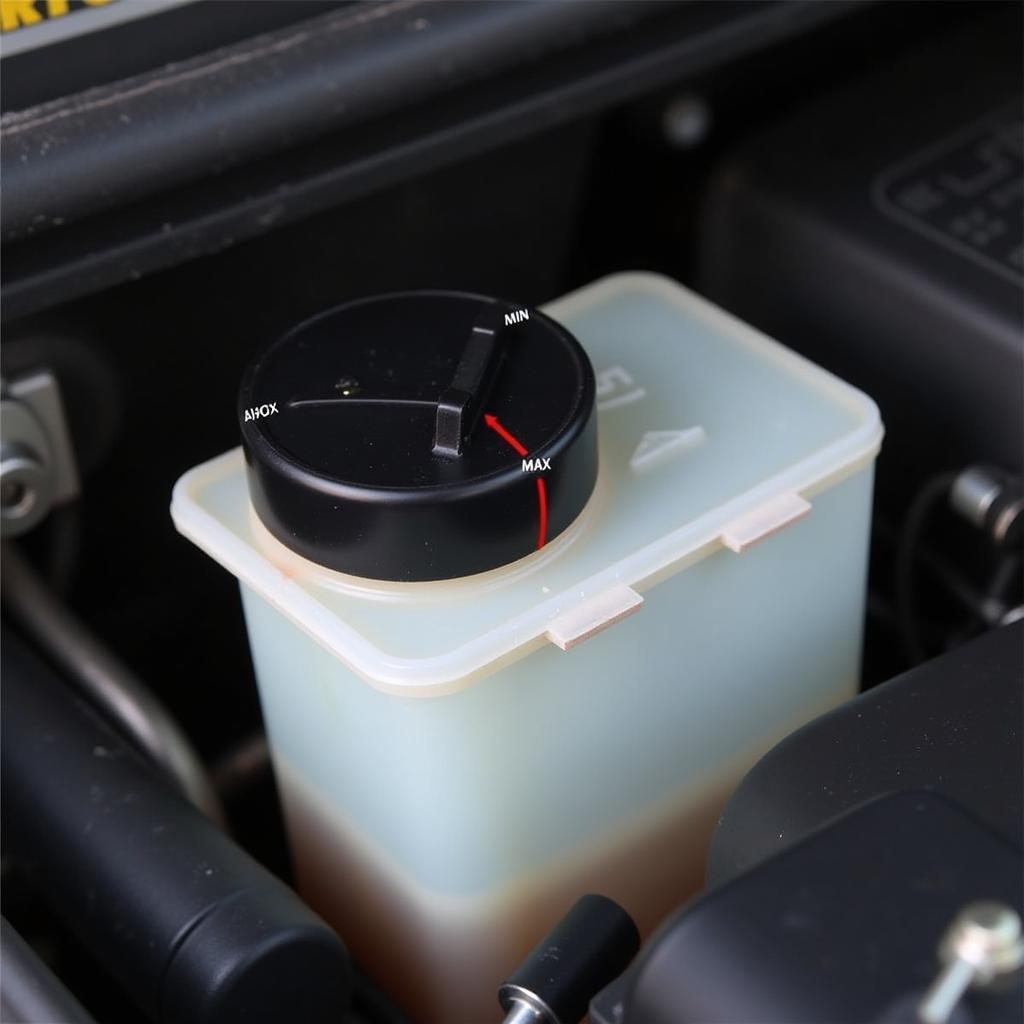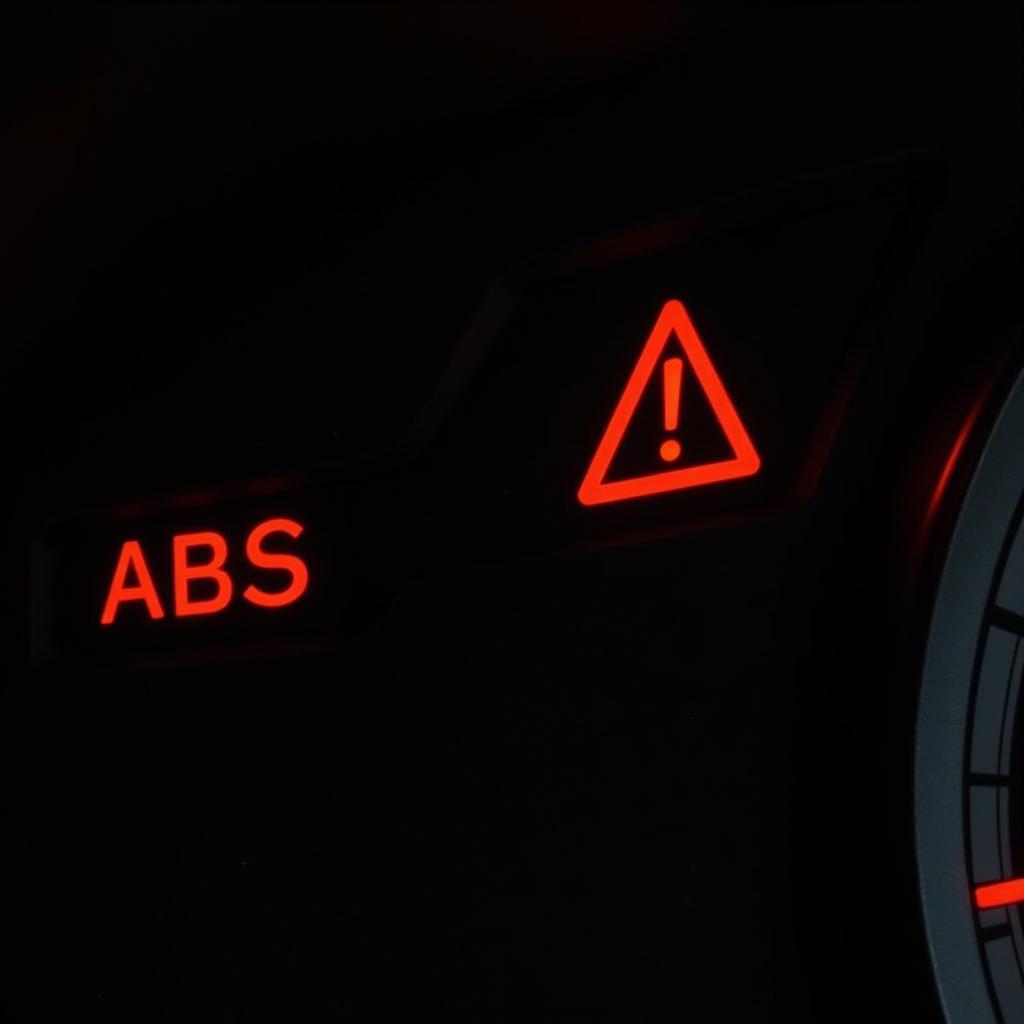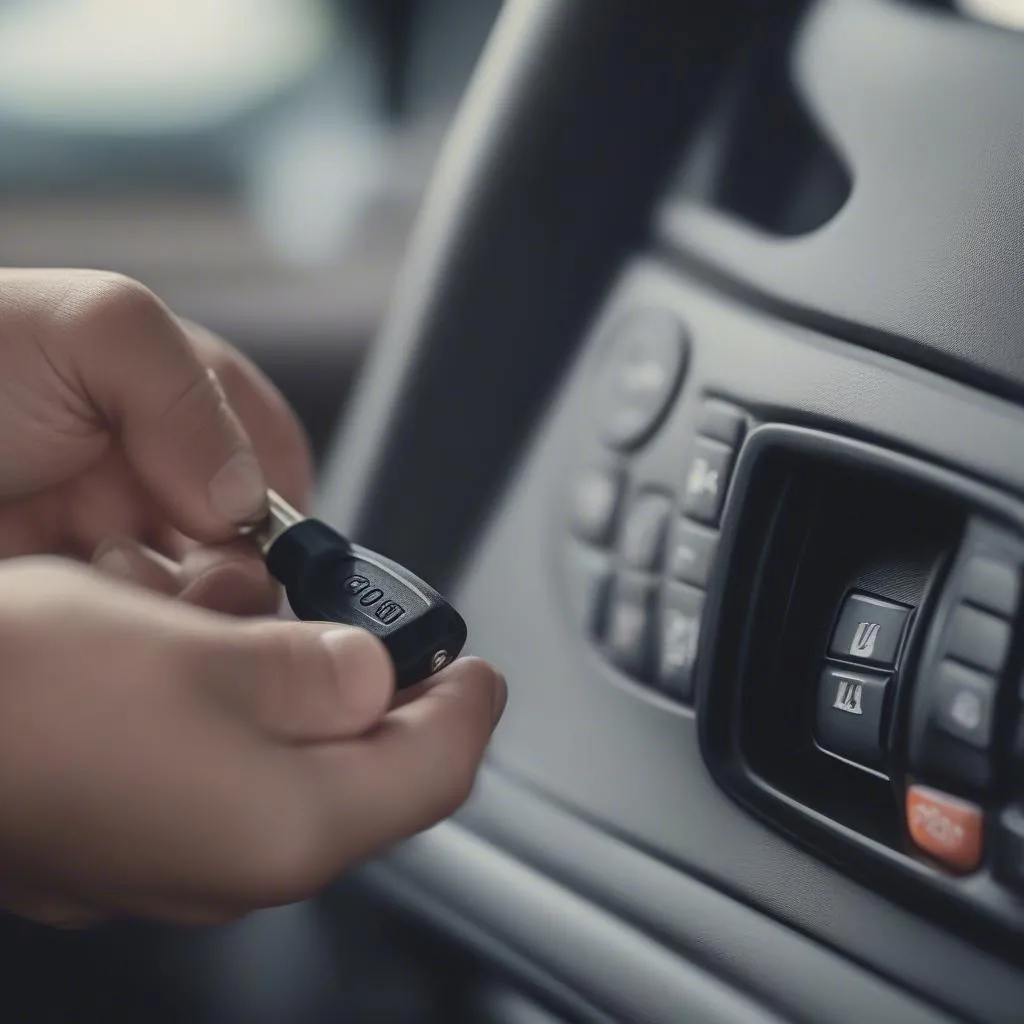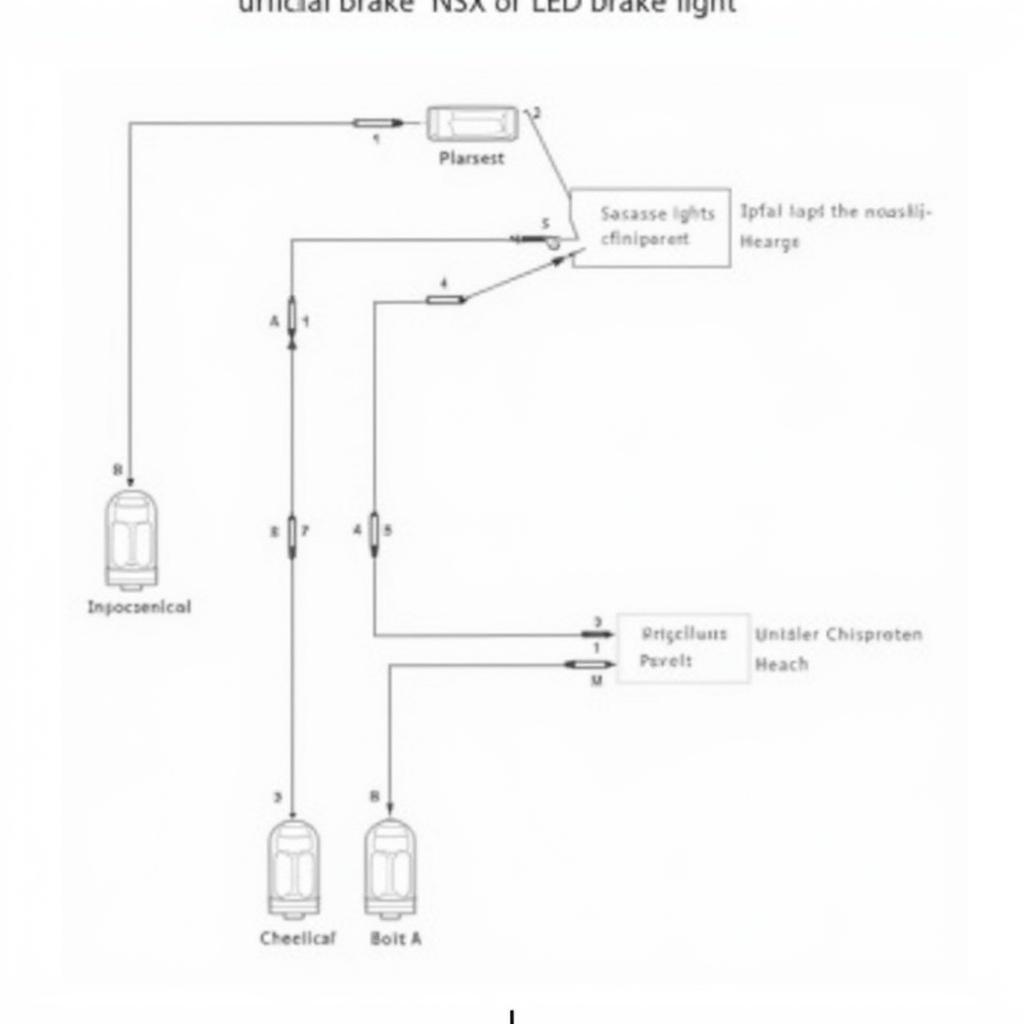The brake warning light on your 2013 Toyota Prius is a crucial safety feature that alerts you to potential issues with your braking system. When illuminated, it signals that a problem needs your attention. While it could be something as simple as a low brake fluid level, it could also indicate a more serious issue requiring immediate attention.
This comprehensive guide will delve into the common causes of a 2013 Prius brake warning light and provide potential solutions to help you get back on the road safely.
Understanding Your Prius’s Braking System
Before diving into the causes, it’s helpful to understand the basics of your Prius’s braking system. It features a regenerative braking system that works in tandem with the traditional hydraulic brakes. When you brake, the electric motor acts as a generator, converting kinetic energy into electricity to recharge the battery. This process also helps slow down the vehicle. The traditional hydraulic brakes provide additional stopping power when needed.
Common Causes of the Brake Warning Light
Here are the most common reasons why your 2013 Prius brake warning light might be on:
1. Low Brake Fluid Level
What it means: Brake fluid is the lifeblood of your braking system. It transmits the force from your foot on the brake pedal to the wheels, enabling your Prius to stop. If the brake fluid level is low, it can indicate a leak in the system, which needs immediate attention.
How to check:
- Locate the brake fluid reservoir under the hood. It’s a translucent container with a black cap.
- Check the fluid level. It should be between the “MIN” and “MAX” lines.
- If the level is low, add the recommended brake fluid (DOT 3 or DOT 4) to the “MAX” line.
 Low Brake Fluid Level
Low Brake Fluid Level
What to do if the light persists: If the light stays on even after adding brake fluid, you likely have a leak in the system. It’s crucial to have your Prius inspected by a qualified mechanic immediately.
2. Worn Brake Pads
What it means: Brake pads are designed to wear down over time as you use them. The 2013 Prius has a wear indicator that triggers the brake warning light when the pads reach a certain thickness, indicating it’s time for replacement.
How to check: You can visually inspect the brake pads through the spaces between the wheel spokes. If they appear thinner than 1/4 inch, it’s time for a replacement.
What to do: Replace the brake pads as soon as possible to ensure optimal braking performance and safety.
3. Faulty Brake Light Switch
What it means: The brake light switch is a small sensor located behind the brake pedal. It signals the brake lights to illuminate when you press the pedal. A faulty switch can cause the brake lights to malfunction and trigger the brake warning light.
How to check: A mechanic can diagnose a faulty brake light switch using a multimeter or a scan tool.
What to do: Replace the brake light switch with a new one.
4. ABS System Malfunction
What it means: The Anti-lock Braking System (ABS) prevents your wheels from locking up during hard braking, helping you maintain control of the vehicle. If the ABS system malfunctions, it can trigger the brake warning light.
How to check: The ABS warning light will typically illuminate along with the brake warning light if there’s an issue with the ABS system.
 ABS Warning Light
ABS Warning Light
What to do: If you suspect an ABS system malfunction, have your Prius inspected by a qualified mechanic who can diagnose and repair the issue.
Conclusion
Ignoring a brake warning light can have serious consequences. If the brake warning light illuminates on your 2013 Prius, it’s crucial to address the issue promptly. While some causes, like low brake fluid, might be simple to address, others require the expertise of a qualified mechanic. Remember, maintaining your Prius’s braking system is paramount for your safety and the safety of others on the road.


